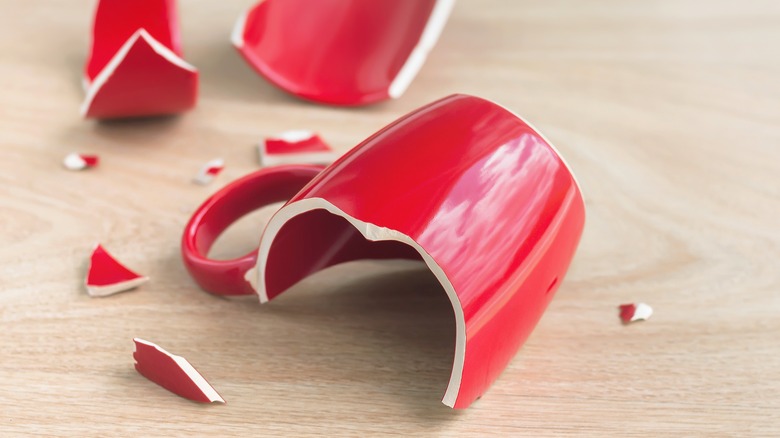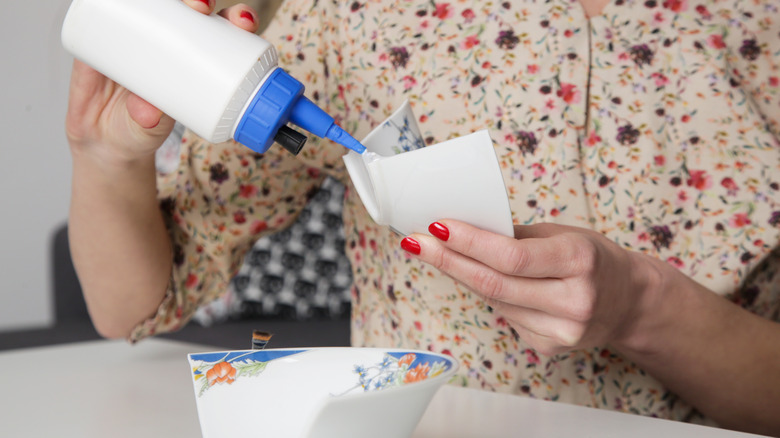The Best Glue To Use To Bring Broken Ceramics Back To Life
Piecing together the shards of a favorite mug or pot is often pointless. After assembling the bits, the super-glued results tend to look like a product of Dr. Frankenstein. And forget about the container ever holding a steaming latte or healthy plant. While there are scores of ideas for reusing broken garden pots and old coffee mugs, hold off on the art projects until you've tried a new solution. The next time gravity gets the best of a ceramic item in your home, give porcelain glue a try.
When we're repairing cracked porcelain, ceramics, or pottery, we want to be able to use it as we did before. In addition, we want the object we've fixed to look as if it's never taken a tumble. Porcelain glues do both. There are several varieties that are made for the best fit for your project. Heat-resistant, easy to clean up, quick-drying, and/or safe for contact with foods and drinks, there's a type of porcelain glue that can bring your broken ceramics back to life.
What kinds of porcelain glue are available?
Whether you need to fix a chipped bathroom sink or rehabilitate a broken plate, there's a different type of porcelain glue suited for each rehab. Some glues are meant to grip and hold beautifully but shouldn't come into contact with food and drink. Others are food-safe and can tolerate high temperatures. Most porcelain glues are made from cyanoacrylate (the ingredient in super glue and other quick-drying powerful glues) or from epoxies. There are both cyanoacrylate glues and epoxies that fill gaps and are transparent, two qualities that can help hide your painstaking reconstruction.
It's more common to find cyanoacrylate porcelain glues labeled as food-safe than epoxy adhesives, although some epoxies can safely come into contact with food. If you're fixing a mug, bowl, or plate, err on the side of caution and fix it with an adhesive that's clearly labeled as food-safe. Loctite Go2 Gel is a good fit for dishes. Not only is it food-safe, it's also waterproof and can hold up to extreme temperatures in dishwashers and microwaves. When you're done with your mending, try our trick to easily remove superglue when you're cleaning up from the project.
Professional ceramic restoration companies recommend epoxies for objects that are handled often or that are in high-traffic areas. These tasks can include broken floor or wall tiles, cracks in sinks or tubs, and other damaged household fixtures.

